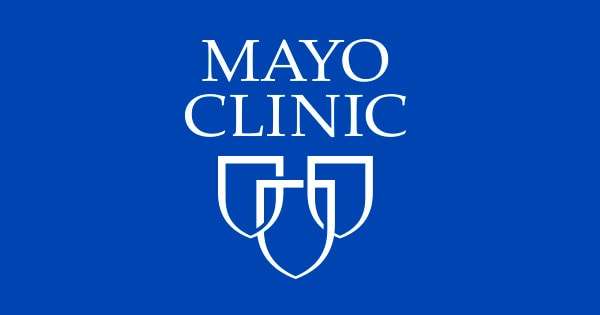24/7 Depression Hotlines
National and local depression hotlines are available to provide resources that can help you through your depression and lay the groundwork for a brighter future.
Symptoms of depression can pop up at the most inconvenient times. When your friends are asleep, your therapist is out of the office or your significant other is at work, it can be hard to know where to turn.
Even if you have never considered it, a depression hotline could be a useful resource. Available 24 hours a day, seven days per week, depression helplines are a useful tool for your coping skill toolbox.
National Depression Hotlines
There are a variety of depression hotline numbers available to anyone across the country who is in need. Examples include:
Article at a Glance:
- Depression can strike at inconvenient times when you don’t have someone available to talk to.
- There are depression hotlines that offer 24/7 depression coping assistance.
- Consider calling a depression hotline if you have severe symptoms, don’t have in-person support, when you need feedback from an unbiased person or if other coping strategies aren’t working.
- Depression hotlines are free and confidential.
- The Recovery Village provides lists of phone-based, text-based, youth-specific, national and local hotline resources on our website.
When Should You Call a Depression Hotline?
Calling a depression hotline is not an appropriate fit for every situation, so you’ll need to know when and when not to call. Good times to call a depression hotline include:
- When your symptoms are severe
- When your other supports are unavailable
- When you need feedback from an unbiased person
- When your other coping skills don’t seem to be helping
If you are having a mental health crisis, calling a depression hotline could offer the assistance and guidance you need.
Related Topic: Getting Support for Addiction & Mental Health with Teletherapy
What Kinds of Questions Will You Be Asked?
Each call to a depression helpline will differ depending on who answers the phone and what symptoms you experience. One constant will be the questions asked by the person on the other end of the phone, which may include any of the following:
- What’s going on?
- How are you feeling?
- Are you safe?
- Are you thinking about hurting yourself or someone else?
- What do you need?
Some questions may seem odd or unimportant, but the helpline operator needs honest answers to gather information about your situation. Being open and thorough in your answers increases your chances of receiving the most helpful aid possible.
Benefits of Calling a Depression Hotline
One call to a depression hotline could offer several benefits by:
- Giving you an opportunity to talk about your symptoms
- Providing support
- Allowing you to focus on healthy coping skills
- Helping you access resources available in your community
- Making it easier to schedule appointments with mental health professionals
- Evaluating if emergency services are needed
- Sending a crisis team to your house if necessary
Are Depression Hotlines Free?
Another benefit of depression hotlines is that they are free. Most hotlines receive some source of outside funding to provide these services without any cost to you. However, be sure not to confuse depression hotlines with online therapy options that charge a weekly or monthly fee to speak with a professional.
Is My Call Confidential?
Most depression helplines protect your privacy. Helpline operators will not have access to your address or even your name unless you want them to. You will almost always remain anonymous.
The only time a hotline may break your confidentiality is to protect you or someone you know against the threat of suicide or violence. In these situations, the other person may contact law enforcement to maintain safety.
Local Depression Hotlines
National hotlines offer tremendous services, but sometimes you might feel better understood by a depression hotline staffed by locals. Fortunately, all states and many counties have crisis hotlines to assess and address your needs:
Browse Local Hotlines By State
Alabama
Alabama Department of Public Health
1-800-691-8426
Alaska
North Star Behavioral Health System
1-800-478-7575
Arizona
Mercy Care Crisis Services
1-800-631-1314
Arkansas
Arkansas Crisis Center
1-888-274-7472
California
Los Angeles County Suicide Prevention Center
1-877-727-4747
Colorado
Colorado Crisis Services
1-844-493-8255
Connecticut
United Way of Connecticut
211
Delaware
Contact Lifeline
1-800-262-9800
Florida
United Way of Florida
211 in multiple counties
Georgia
Fulton Emergency Mental Health
1-404-730-1600
Hawaii
AMHD Crisis Line
1-800-753-6879
Idaho
Idaho Department of Health and Welfare
1-888-573-7652
Illinois
InTouch Hotline
1-312-996-5535
Indiana
United Way of Indiana
211
Iowa
Great Rivers 211
1-800-362-8255
Kansas
Crosswinds Counseling and Wellness
1-866-330-3310
Kentucky
Pathways Inc.
1-800-562-8909
Louisiana
Louisiana Association of United Ways
211
Maine
Maine Department of Health and Human Services
1-888-568-1112
Maryland
Mental Health Association Call Center
1-301-662-2255
Massachusetts
Samaritans-Suicide Prevention
1-617-247-0220
Michigan
University of Michigan Health System
1-734-936-5900
Minnesota
Minneapolis Hennepin County Medical Center
1-612-873-2222
Mississippi
Mississippi Contact Helpline
1-662-328-0200
Missouri
Missouri Department of Mental Health
1-800-356-5395
Montana
Suicide Prevention Hotline
1-800-273-8255
Nebraska
Center Point Helpline
1-402-475-6695
Nevada
Nevada Crisis Call Center
1-775-784-8090
New Hampshire
New Hampshire HelpLine
1-800-852-3388
New Jersey
Ocean Mental Health Services
1-732-240-6100
New Mexico
NM Suicide Prevention Hotline
1-866-435-7166
New York
Capital District Psychiatric Center Crisis Unit
1-518-447-9650
North Carolina
Mecklenburg County Crisis
1-704-566-3410
North Dakota
FirstLink Crisis Services
1-701-235-7335
Ohio
Dayton Suicide Prevention Center
1-937-229-7777
Oklahoma
Heart Line/ Care Line
1-405-848-2273
Oregon
National Suicide Prevention Line
1-800-273-8255
Pennsylvania
Resolve Crisis Services
1-888-796-8226
Rhode Island
The Samaritans of Rhode Island
1-401-272-4044
South Carolina
United Way Association of South Carolina
211
South Dakota
Northeastern Mental Health Center
1-605-229-1000
Tennessee
Tennessee Statewide Crisis Line
1-855-274-7471
Texas
Hope Line
1-325-677-7773
Utah
Weber Human Services
1-801-625-3700
Vermont
Clara Martin Center
1-800-639-6360
Virginia
Crisis Link
1-703-527-4077
Washington
Wahkiakum County Health and Human
1-800-635-5989
West Virginia
Help4WV
1-844-435-7498
Wisconsin
The Crisis Center of Family Services
1-920-436-8888
Wyoming
Wyoming Behavioral Institute
1-800-457-9312
If you still need more help addressing your depression linked to a problem with substance use, consider teletherapy or contact The Recovery Village to learn about treatment options for co-occurring disorders.
If you’re looking for healthy ways to manage depression, the Nobu app can help. It is free and for anyone that is looking to reduce anxiety, work through depression, build self-esteem, get aftercare following treatment, attend teletherapy sessions and so much more. Download the Nobu app today!
-
“You know it is easy to say the bad things and point out the bad in people. It’s harder to point out the good. I want to thank you for doing that. No one ever does that. You really listened and I got the information I needed.”
58-year-old man after speaking with a NYC Well counselor
-
“Thank you so much for being a real person and being so real. I was so afraid to call this number. I had no idea you guys would be so kind to me.”
Young woman assisted by NYC Well
-
“I have never been able to talk about my abuse until now. You have made me feel comfortable and like I can do that here.”
19 year old woman, abuse survivor
-
“Thank you for giving me the time.”
15-year-old girl
-
“You are right. I am not alone.”
Mother of a young adult
-
“May your life be as pleasant and as helpful as you have been to me.”
71-year-old woman speaking of a NYC Well counselor
If you are in immediate danger, please call 911.
If you have experienced violence, it is not your fault. The sooner you get help, the sooner you can begin to feel better.
Coping With Trauma
Trauma can have long-term effects on mental health. You are not alone.
It is normal to:
- Feel anxious, sad, or angry
- Have trouble concentrating and sleeping
- Continually think about what happened
If these reactions are interfering with daily activities, you may want to seek some help. Some signs from the National Institute of Mental Health that you might need help:
- Worrying a lot or feeling very anxious, sad, or fearful
- Crying often
- Having trouble thinking clearly
- Feeling angry, resentful, or irritable
- Having frightening thoughts or flashbacks
- Having nightmares/difficulty sleeping
- Avoiding places or people that bring back disturbing memories
- Becoming isolated
Children might:
- Wet the bed after having learned to use the toilet
- Forget how to or be unable to talk
- Act out the scary event during playtime
- Become unusually clingy
In addition to reaching out for help if you need it, try to avoid alcohol and other drugs, spend time with supportive loved ones, and maintain normal routines as much as possible.
If you suspect child abuse, report it. Call ChildLine at 800-932-0313. Find other resources on the Keep Kids Safe website.
Domestic Violence
If you witness or hear a violent incident, do not ignore it and don’t intervene on your own. Call 911 immediately.
Pennsylvania has more than 50 domestic violence programs to help victims find safety. Find your closest domestic violence program and/or call the National Helpline at 800-799-7233.
It’s not always easy to identify domestic violence. Here are some warning signs to watch for from the Pennsylvania Coalition Against Domestic Violence (PCADV):
- Name calling/demeaning comments
- Seeming “too good to be true” early in the relationship
- Relationship advances quickly
- Threatens to harm/kill you, your pets, or family members
- Blames you for the abusive behavior
- Prevents you from spending time with loved ones
- Restricts access to financial resources
Worried you might be in an abusive relationship? Take the “Is this abuse?” quiz from PCADV.
Sexual Violence
If someone comes to you to say they have experienced sexual violence, the most important thing you can do is remain calm. Believe them and remind them that it is not their fault.
Pennsylvania’s rape crisis centers provide 24/7 confidential services for those who have experienced sexual assault. Find your local rape crisis center with this map from the Pennsylvania Coalition Against Rape or call 888-772-7227 for support and services, including:
- Crisis counseling
- Services for family, friends, and partners
- Information
- Referrals to other services in your area
- Prevention education programs
Find more resources through the National Sexual Violence Resource Center — located right here in Pennsylvania.



